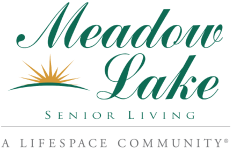
Ways for Older Adults to Avoid High Blood Pressure
Living Smart and Staying Healthy
Carly’s Story
Carly loves to tell the story of how, as a child, she used to sit next to her grandfather at Sunday dinners at her grandparents’ house. She enjoyed the time with her extended family as well as delicious traditional meals her Gramma made, like roast beef and chicken. But her favorite dinner by far was ham. During one ham dinner, she asked in her best grown-up voice for her grandfather to please pass the salt—and she then proceeded to salt her ham. She was confused when her grandfather started laughing and said, “Carly, we do not put salt on ham! You don’t want high blood pressure like me!”
What is High Blood Pressure?
High blood pressure is unfortunately a common health concern, affecting up to half of all adults, according to the National Institute on Aging. Also called hypertension, high blood pressure occurs when the vascular system, or the network of pathways that carry blood through our bodies, changes as we age, becoming less resilient.
Blood pressure readings measure the force of blood pumped by the heart as the blood pushes against the walls of blood vessels. Untreated, this condition can lead to many serious health problems, including heart disease, stroke, eye problems, and kidney disease. And, according to the CDC, this condition can have few physical symptoms, leaving many individuals unaware that they are suffering from hypertension.
What Can We Do to Minimize Risk?
Fortunately, there are steps we can take to minimize our risk of developing high blood pressure. As Carly learned from her grandfather, reducing salt, or sodium, intake is a good first step. In fact, according to the Mayo Clinic, even a small reduction in sodium can result in significant improvements in blood pressure and heart health.
Many of us have heard that consuming less salt is a good way to improve blood pressure. But what are some other things we can do?
- Healthy Eating: a diet low in sodium and saturated fat and high in potassium, fiber, protein, and fresh fruits and vegetables is recommended; link to DASH (Dietary Approaches to Stop Hypertension) eating plan below
- Maintaining a Healthy Weight: being overweight or obese increases the risk of high blood pressure
- Physical Activity: the CDC recommends getting about 33 minutes of moderate exercise five days per week to help with weight control and to lower blood pressure
- Do Not Smoke: smoking increases blood pressure and the risk of heart diseaDrink Alcohol in Moderation: alcohol consumption can raise blood pressure and interfere with the effectiveness of blood pressure medication
- Sleep Quality: ongoing poor sleep quality can contribute to high blood pressure; treating sleep apnea and other conditions that interrupt sleep can improve sleep quality, blood pressure, and overall health
- Manage Stress: finding healthy ways (yoga or tai chi, gratitude journal, avoiding situations that trigger stress) to reduce stressors and chronic, or long-term, stress may help control blood pressure
Additional Information
Of course, your doctor is the best place to start for more information on avoiding or reducing high blood pressure. Since race, family history, and gender are factors affecting high blood pressure in addition to age, your doctor will be the source of personalized medical information.
Here are some additional well-respected sources:
The Centers for Disease Control and Prevention https://www.cdc.gov/bloodpressure/prevent.htm
The DASH Eating Plan (Dietary Approaches to Stop Hypertension)
https://www.nhlbi.nih.gov/education/dash-eating-plan
The Mayo Clinic
https://www.mayoclinic.org/diseases-conditions/high-blood-pressure/in-depth/high-blood-pressure/art-20046974
The National Institute on Aging
https://www.nia.nih.gov/health/high-blood-pressure-and-older-adults#:~:text=High%20blood%20pressure%2C%20or%20hypertension,habits%20and%20feel%20just%20fine
